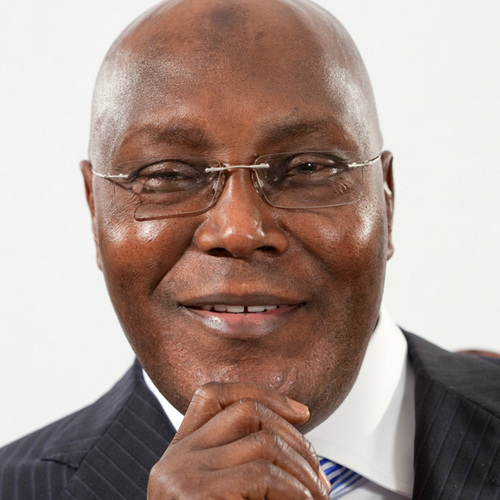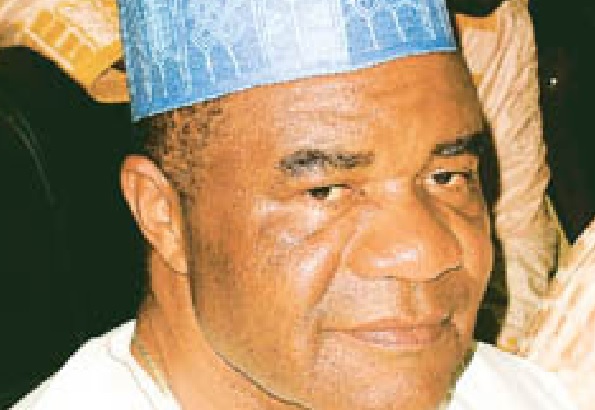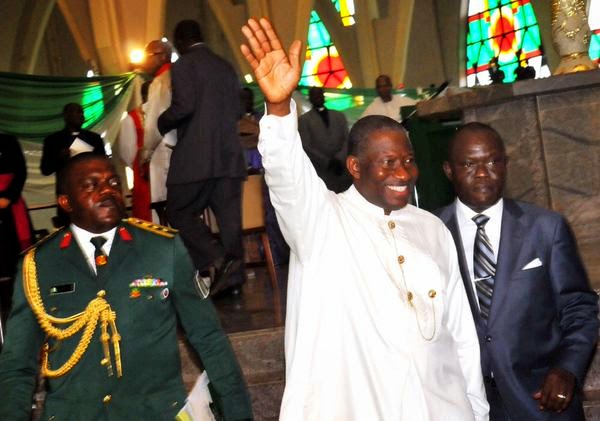I am excited to be here to share with you my thoughts on the relationships among the political Party, the Legislature and the Executive in a democracy. I thank our great party, the APC, for organizing this retreat and for giving me this opportunity.
Let me start by heartily congratulating you, our senators-elect, on your electoral victory after what were obviously very tough campaigns. Although the electoral battles were difficult, may I suggest that the real battle is only about to begin: the battle to change Nigeria, to give our people a genuine shot at living their dreams. We have a lot of work to do and we must start immediately.
As legislators you will be working with the Executive arm of the government to deliver on the policies and programmes that we promised the people of our country. In making those promises we were drawing broadly form the policy platform of our political party. Thus it is obvious that,in the process of governance,there are linkages between the Party and elected officials, including those in the Legislature and the Executive. And do not forget the judiciary because whatever you do in the exercise of your constitutional mandate must be within the ambit of the law, and it is the judiciary which has the responsibility to interpret the law.
How the political party, the Legislature and Executive relate with one another is critical for the success of any democratic government and the development of the society. Yet it is a relationship that is fraught with uncertainties, tensions, mistrust,conflicts, and struggles.
Advertisement
Our democracy is rather young. Thus we are still grappling with the challenges of defining the contours and boundaries of our various democratic institutions, including the Legislature, Executive and the political party. Our party, the APC is also still young and, like the other parties, still contending with issues of party building, party structures, internal democracy and the nature of the relationship between Party and the government, including the Legislature and the Executive. Each still struggles to understand its roles, powers, and limits, while engaged with the others. The challenges posed by the complexity of the relationship among these institutions and the individuals implicated in them can sometimes be serious enough to affect governance and threaten the stability of the polity.
That our democracy is still young is not the whole story however. As leaders, we have not always taken adequate steps to deepen and secure our democracy. The legacy of authoritarian rule has not helped matters.Therefore, the vestiges of intolerance of opposition and criticism remain quite strong. Also the structure of the Nigerian economy, with the state as the most important source of economic opportunity, intensifies the struggle for state power and helps to shape the relationship between parties and members, among parties and among the various arms of government. Access to state patronage and threats of reprisals by the coercive agencies of the state are often used to keep political actors in line.
In this presentation I have decided to lump together the Party, the Legislature and the Executive because they are interrelated. The Legislature and the Executive are by-products of the Party and, by extension, products of the people in a presidential system of government.
Advertisement
I shall be making three arguments.
- That in order for us to succeed as a party in government and for our democracy to endure, the Party, the Legislature and the Executive must work in concert rather than see one another as a competitor or rival.
- That lawmaking for the overall good of our country requires that the Legislature, including the Senate, has the autonomy to discharge its legislative and oversight functions
- For these to happen and be sustained, internal party democracy and electoral reforms are necessary to ensure that the people’s will always finds expression in governance.
The Party, The Legislature and The Executive
The political party is the vehicle for the struggle for power in a democracy. Those who seek to serve their people through political office typically do so through the instrumentality of the political party. Ideally the political party is made up of individuals who share common ideas and beliefs about how society should be governed and seek power to actualize same. The Party provides for members the space for the articulation of ideas and visions for the governance of society. The Party is a vehicle for citizen participation in the political process, the organizing centre of discourse, debates, and contentions and consensus moulding for key policies. Thus the Party is critical for democratic governance. Through its mechanisms for member interaction, debates, contests and even discipline, the political party tries to get its interests represented in the Legislature. Internal democracy in the political party is, therefore, important to allow for free expressions by all members and for various tendencies to find space for expression.
It is clear, therefore, that parties often contain individuals and groups with varying tendencies, ideas, interests and aspirations. In our multi-ethnic, multi-religious country these sometimes take on ethnic, religious, and regional dimensions as well. This is why I have, for a long time, been a strong advocate of a two-party system for Nigeria. A two-party system would help to narrow differences among parties as a great deal of differences would already be sorted out within each party. Thanks to the sacrifices and hardwork of the leadership of what is today the APC, Nigeria has become, at least for the time-being, a de facto two-party state, with the APC soon to be the governing party and the PDP the main opposition party, and very likely a formidable one.
Advertisement
Through legislation, political leaders seek to give legal backing to their vision of society, their programmes and policies. The legislative process, which our senators-elect will be engaged in, allows the vision, programmes and policies of one party, group or individual to contest against those of others. The oversight function of the Legislature is another avenue for parties to ensure that their vision of society, as expressed in legislation, is adhered to by those charged with implementing same. As senators you have another important role, that of confirming some statutory appointments that the president would propose.
There are inherent tensions in the relationships among the Party, the Executive and the Legislature. The governing party, after elections, typically expects the Legislature and the Executive to carry out their duties in accordance with the dictates of the Party (or party leaders). These range from appointments, and patronage to the implementation of government programmes. But the Legislature and the Executive typically prefer to be allowed to do their jobs unhindered. While the Party often insists on party supremacy, ideological purity and reward for members, the Executive tends to prefer a free hand in implementing policies and programmes and sometimes sees the Party and Legislature as meddlers.The Executive sometimes claims to be the one that really faces the challenge of governing. The Legislature, on its part, sometimes sees the Executive as high handed and dictatorial and the Party as meddling and unappreciative of the need for compromises as well as the pressures on individual members from their constituents.
Legislative Autonomy
In our presidential system of government, the different arms have specific functions assigned to them by the constitution. And the autonomy of the three arms is deemed important for checks and balances and accountability. It would be inappropriate, for instance, for the Executive and Judiciary, which have the responsibilities to execute and interpret the laws respectively, to unduly interfere in the manner in which the laws are made. That is why some independence of the law-making arm is essential. That autonomy allows legislators to carefully consider bills and proposals for the overall interest of the society or segments thereof. It allows the Legislature to carry out its oversight functions and to adequately represent the people.
Advertisement
In reality, however, the control of state resources, including the instruments of coercion, by the Executive tends to make it the most powerful of the arms of government as well as the political party that assisted it to power. Thus the Executive often tries to erode the autonomy of the Legislature in carrying out its functions and to control or marginalize the Party. As legislators you should guard the autonomy of the Legislature for the interest of our democracy and our country. That means that the Legislature should not be a mere rubber stamp for the wishes and desires of the Executive. It also means the Legislature must be able to acquire from the Executive all the information necessary for its legislative or oversight functions. It means the members of the Legislature cannot be harassed or intimidated by agents of the Executive arm in order to influence how they perform their functions. Legislative autonomy also means that the judiciary should not be allowed to use frivolous injunctions or other legal technicalities to try to undermine the work of the Legislature.
But, as legislators, you have to carry out these functions within the context of the party’sprogrammes, the plans of the Executive and the resources available. Legislative autonomy is not a licence to ignore or deliberately pick fights with the Executive. Making laws that are unreasonable or which cannot be implemented helps no one. An instance from our contemporary history is the persistent struggles between the federal Executive and the National Assembly over appropriation of funds. The Executive tends to expect the National Assembly to simply ratify its spending proposals while the National Assembly, in trying to assert its constitutional responsibility and autonomy, sometimes tries to truncate the Executive’s spending plans (often increasing the budgetary outlay year in year out).
Advertisement
The Legislature should not see itself as an adversary or competitor to the Executive or try to use its authority to appropriate and carry out oversight to harass or intimidate members of the Executive arm. And it is certainly not a licence for legislators to abandon the Party that brought them to power. It is also important for the Legislature and the Party to understand that the Legislature is not an extension of the governing party. Rather it is the Legislature of the whole country. Thus the opposition parties will have their say and sometimes compromises with the opposition are required to pass important bills and for other legislative work to be accomplished. Problems are bound to arise when the governing party assumes or insists that the Legislature must sign off on all its demands. Both the members of the governing party as well as the opposition parties represent constituents who may have peculiar needs and demands that are not obvious to the national or state leadership of their parties. Parties have to take these into account.
I believe that our people would be served better if the Party, the Legislature, and the Executive are guided by the national interest. Legislators are closer to the grassroots and are a sounding board for policies and programmes and peoples’ desires and priorities. They capture the peculiarities and specific needs and challenges of our various localities. A President, for instance, has the whole country as constituency, and should focus more on the big picture while the Legislature brings together people representing particularities.
Advertisement
Compromises are key to serving the national interest and avoiding gridlock. It is critical for the Executive to demonstrate an understanding that the Legislature is an institution of state different from the governing party or sitting government. The Executive, therefore, needs to respect and abide by the authority conferred on the Legislature by the constitution.
Clearly the national interest requires the Legislature to appreciate the constitutional role and authority of the Executive rather than see it as an adversarial subordinate. The national interest, as the overriding interest, will ensure respect for healthy independence of each arm. It is important that the Legislature, the Executive and the Party work in concert with one another. Creating multiple avenues and occasions for interaction among leaders of the three organs will help.
Advertisement
It is reassuring to note that these challenges are not peculiar to young democracies, as we can see from the long-running battles between the White House and the US Congress.
Internal Democracy
My dear friends, let me suggest that the critical element in ensuring the most fruitful relationship among Party, Legislature and Executive is internal democracy in political parties, free, fair, and credible elections, and a democratic culture in the wider society. These are what will ensure that parties actually represent the interests of members and by extension the wider Nigerian public, and that the government that emerges from elections truly represent that wider public. Internal party democracy ensures that party members get to choose the party leaders and their candidates for elections. Those elected would, therefore, be the true representatives of the people, who would also hold them accountable.
Ladies and gentlemen, a great deal of the credit for the relative success of our 2015 general elections has deservedly gone to the commitment and integrity of the leadership of the INEC and the use of technology. However these should not be taken for granted. The sustenance of our democracy is too important to be hinged on the chance of a determined and resolute INEC leadership. Thus we need to return to our unfinished business of electoral reforms, including improvements in internal party democracy. As the current fate of the PDP shows, electoral reforms and internal party democracy are in the interest of all, including the governing party.
Once more, I congratulate our senators-elect on their electoral victory. And I thank our great party again for inviting me to share these thoughts with you. I wish you fruitful deliberations.
I thank you for your attention.
Abubakar, former vice president, delivered this address at the pre-inauguration retreat for All Progressives Congress senators-elect.
Add a comment





